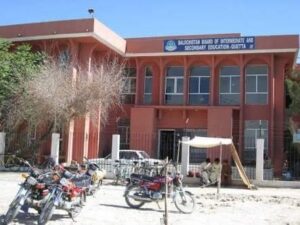Local Government—Least priority
Mehfooz Ali Khan
In a democratic form of government, generally, there are three levels of government; Federation/Central government, Provincial/State government, and Local government. The common man’s welfare is dependent on how well established are the local governments. All basic issues are local in nature and local governments have a better understanding of those issues and are better placed to resolve those issues. All progressive democracies have empowered and strengthened local governments and Federal/Central governments concentrate on issues of national importance. Keeping in view this aspect, the “Devolution Plan” was introduced by Musharraf Regime. His hidden agenda aside, the plan itself was in line with the democratic dispensation.
Only KPK continued with the system
This system, with some shortcomings, worked well during his tenure, thereafter it was put on the back burner. Only KPK continued with the system and always set aside sufficient funds for strengthening local governments in the province. It is ironic that often local government elections are conducted after court interventions. Through 18 the Constitutional Amendment a new Article140(A) was added to the Constitution requiring transfer of Financial and Administrative powers to the Local Governments. This article has not yet been complied with in letter and
spirit despite a lapse of 11 years. It is all the more regretting that those who rose at the provincial level from local governments are oblivious and indifferent to the needs of this important tier of governance. In this article, I restrict discussion to Balochistan but would like to present an overall situation, as prevails in other provinces. Under the Local Government Act, 2010 following was the structure of Local Governments in Balochistan:
Structure of LG under 2010 act
Metropolitan Corporation 1
Municipal Corporation. 4
District Councils. 32
Municipal Committees 53
Union Councils 365
There may be little variation after the creation of new Divisions, Districts, and Tehsils, but the above figures are demonstrative in nature and serve the purpose of this article. Currently, all tiers of local governments have been starved of funds and they are only restricted to paying salaries. The situation got aggravated after the well-known financial scam involving the misappropriation of funds. Following are the local government’s specific budgetary allocations by all four provinces: (Provincial and District Development Budget. (Amounts are in Billions) Punjab Rs. 560 Rs. 360 Sindh Rs. 391 Rs. 30 KPK Rs. 371 Rs. 17.4 Balochistan Rs.237 Rs. 05 Above figure speaks volumes as to how much importance different provinces attach to local governments.
LG picture in Balochistan is more dismal
This picture in Balochistan is more dismal as a total of Rs.5 billion has been set aside for the uplift of local governments’ crumbling structures. It is more deplorable because the Chief Executive of the province rose to the current position from District Nazim. He should have realized the crucial role of local governments. Another important aspect is the absence of the Provincial Finance Commission(PFC). All four provinces demand the formula-based constitutional transfer of funds from the Federation, but when it comes to their own distributional mechanism, their decisions are based on whims. In the early period of Devolution, there was a properly notified PFC with a clear mandate of distribution of funds. The PFC had representations of Local Government Representatives, Technical Private Member, Local Government, and Finance Departments. The formula was broad-based which included Area, Revenue Generation Capacity, Poverty, and Development Needs. That was scrapped after the Musharraf era. Now whatever funds are allocated in the budget, are mostly spent at the discretion of the Chief Executive and Provincial Local
Government Department.
Rs. 5bs distributed among hundreds of local bodies
Will there be any visible positive change on the ground if Rs.5 Billion are distributed among hundreds of local government bodies? Even this amount is insufficient for Metropolitan Corporations, Municipal Corporations, and Municipal Committees. It is not the job of the Provincial
government to manage district-level primary education, primary health, drinking water, sewerage, solid waste management, basic housing facilities. With current funding and administrative powers, it is simply naïve to expect local governments to deliver these basic amenities to the masses.
The author has served as the Chief Secretary and Secretary Finance Balochistan






